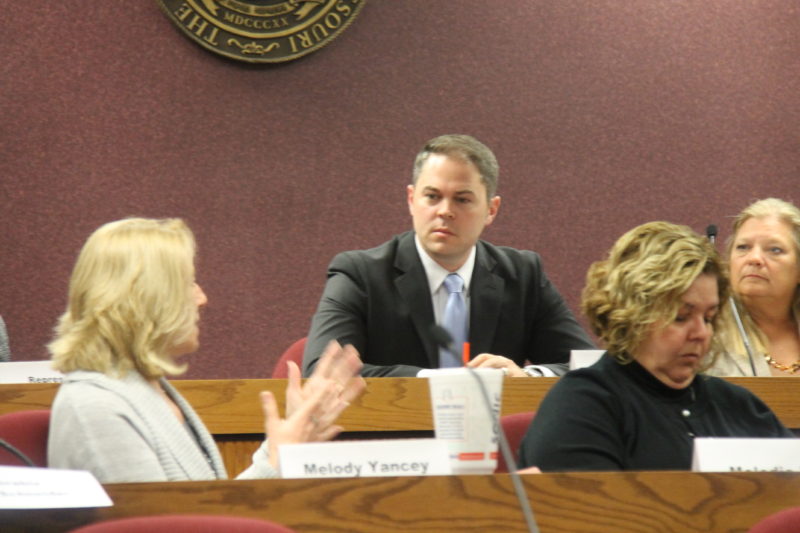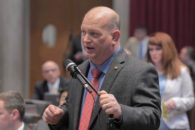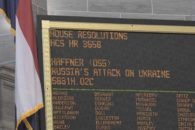JEFFERSON CITY, Mo. — The Missouri Human Trafficking Task Force has made large strides in the ongoing fight against forced prostitution and other forms of human trafficking in Missouri, but Tuesday’s meeting at the state capitol marked the final time in which the group will meet.
The task force was first established in 2015, and in the short amount of time that the task force has existed, they have held several hearings which lay bare the horrors and tragedies of the crime.
It also helped pass legislation to reform the definitions of sex trafficking here in the Show Me State. The task force’s chairman, Rep. Elijah Haahr, sponsored a bill which expanded the definition to include the advertisement of minors and adults without consent for prostitution and/or pornography. Governor Jay Nixon signed the bill in June of this year.
“It’s been a good experience, and I think it’s one of those things that everyone in the state can appreciate the work that we’re doing here today,” Haahr said. “I think probably the biggest thing is opening people’s eyes to just how bad this issue is in the Midwest, but then hopefully giving some of the tools that we can to help them move forward.”
But the question on many people’s minds is this: what is next?
Before the end of the year, the task force is required to submit their findings and proposals to the legislature, making suggestions on what the legislature should do moving forward. During their meetings, three subcommittees have been formed. One focuses on proposed legislation and changes, another looks at budgetary requests, and the third committee has focused their efforts on writing some of the best practices and coordination training for organizations throughout the state. Those committees will combine their findings to be incorporated into their final report.
The general consensus from the task force is that there needs to be some sort of coordinator in Missouri to lead the efforts against sex trafficking. However, the issue is deciding whether the position can be created and placed inside of a current state department, or whether it should be a nonprofit effort.
Haahr says that the task force will probably recommend decriminalization in some form, but says it requires some delicacy.
“Nobody wants to be perceived as Missouri is soft on crime,” Haahr said. “You also don’t want traffickers to declare open season and think they can bring women to this state where they won’t get arrested for prostitution and have an influx of new trafficking in the state.”
While the task force members can agree on these issues, they seemed unready to move on after the final report is finished; in fact, it seems they will attempt to move forward, either appealing to the legislature for an extension, or to establish a new committee and include the current members.
Haahr says he believes they will seek another resolution, rather than turning the task force into a working group.
“Coordinating and getting everyone together can be a little tricky when it’s a working group, as opposed to having the legislative weight behind it,” Haahr said.
But even that move is uncertain, since a new administration is soon taking over. One of the discussions in the final meeting was whether there’s even a need for the task force to continue.
The incoming governor and attorney general both may have plans on how to move forward in the fight against human trafficking; in fact, Attorney General-elect Josh Hawley has laid out his plans to combat the issue on his website.
Haahr says that he had a recent discussion with Judge Mary Russell, who told him the courts had expressed interest in developing their own committees. That has left the task force asking whether they should continue, or wait and attempt to move forward together with the other endeavors.
“We need a little bit more time to kind of hand off the baton to these other groups, just to try and get whatever work we’ve done completed and hand it off to either the Attorney General, if he has a task force, the courts, with whatever they’re doing, and just get that process completed,” Haahr said.
Benjamin Peters was a reporter for The Missouri Times and Missouri Times Magazine and also produced the #MoLeg Podcast. He joined The Missouri Times in 2016 after working as a sports editor and TV news producer in mid-Missouri. Benjamin is a graduate of Missouri State University in Springfield.








